#effective usmle step
Text
Top 20 Toughest Exams in World
Here is a list of some of the toughest exams in world, based on various factors such as difficulty level, competition, and passing rate:
United States Medical Licensing Examination (USMLE)
Chartered Financial Analyst (CFA)
Certified Public Accountant (CPA)
Graduate Record Examination (GRE)
Law School Admission Test (LSAT)
National Council Licensure Examination (NCLEX) for Registered Nurses (RN)
Graduate Management Admission Test (GMAT)
International English Language Testing System (IELTS)
Series 7 Exam (FINRA General Securities Representative Exam)
Joint Entrance Examination (JEE)
Fundamentals of Engineering (FE) Exam
Certified Information Systems Security Professional (CISSP)
Actuarial Examinations
Architecture Registration Exam (ARE)
The Defense Language Aptitude Battery (DLAB)
Test of English as a Foreign Language (TOEFL)
Uniform CPA Examination
Armed Services Vocational Aptitude Battery (ASVAB)
The California Bar Exam
Civil Service Examination
United States Medical Licensing Examination (USMLE)
The United States Medical Licensing Examination (USMLE) is a three-step examination for medical licensure in the United States. It is sponsored by the Federation of State Medical Boards (FSMB) and the National Board of Medical Examiners (NBME). The USMLE assesses a physician's ability to apply knowledge, concepts, and principles, and to demonstrate fundamental patient-centred skills, that are important in health and disease and constitute the basis of safe and effective patient care.
Step 1 of the USMLE focuses on the basic sciences and covers anatomy, physiology, biochemistry, microbiology, pharmacology, and pathology. Step 2 CK (Clinical Knowledge) assesses the medical knowledge and clinical skills necessary to provide patient care under supervision. Step 2 CS (Clinical Skills) assesses the ability of a physician to gather and interpret information and to communicate effectively with patients, their families, and healthcare professionals. Step 3 of the USMLE evaluates a physician's ability to apply medical knowledge and understanding of biomedical and clinical science essential for the unsupervised practice of medicine.
The USMLE is widely regarded as one of the toughest exams in the world, and its passing is mandatory for medical students seeking licensure to practice medicine in the United States.
Chartered Financial Analyst (CFA)
The Chartered Financial Analyst (CFA) program is a professional designation offered by the CFA Institute to finance and investment professionals. The CFA program is considered one of the most challenging and prestigious designations in the financial industry, and it is recognized globally as a benchmark of excellence.
To become a CFA charter holder, candidates must pass three levels of exams, each of which covers a specific body of knowledge in the field of finance and investments. The exams are designed to test the candidate's knowledge of investment management, financial analysis, portfolio management, and ethical and professional standards.
The CFA exams are renowned for their difficulty, with a low passing rate, and are considered some of the toughest exams in the world. The curriculum covers a broad range of topics, including economics, financial reporting and analysis, equity and fixed-income investments, alternative investments, and portfolio management.
In addition to passing the exams, candidates must also meet the CFA Institute's professional and ethical conduct requirements, including relevant work experience and continuing professional development. Obtaining the CFA designation requires a significant commitment of time and effort, and it is widely recognized as a hallmark of achievement in the financial industry.
Certified Public Accountant (CPA)
The Certified Public Accountant (CPA) is a professional designation in the field of accounting that is awarded by the American Institute of Certified Public Accountants (AICPA) to individuals who pass the Uniform CPA Examination and meet other requirements set by the state boards of accountancy.
The CPA Exam is widely regarded as one of the toughest professional exams, and it covers a wide range of topics, including auditing and attestation, financial accounting and reporting, regulation, and business environment and concepts. The exam is designed to test the candidate's knowledge of accounting principles, regulations, and practices, as well as their ability to apply that knowledge to real-world scenarios.
Graduate Record Examination (GRE)
The Graduate Record Examination (GRE) is a standardized test that is used by graduate schools and business schools as part of the admission process. The GRE is designed to measure verbal reasoning, quantitative reasoning, and analytical writing skills that are acquired over a long period of time and that are not related to any specific field of study.
The GRE is a computer-based test that is offered year-round at testing centres around the world. The test is divided into three sections: Verbal Reasoning, Quantitative Reasoning, and Analytical Writing. The Verbal and Quantitative Reasoning sections each have a score range of 130 to 170, in one-point increments. The Analytical Writing section is scored on a scale of 0 to 6, in half-point increments.
The GRE is considered to be a challenging exam, and it requires a significant amount of preparation, including a thorough review of math concepts, vocabulary, and essay-writing techniques. The Verbal and Quantitative Reasoning sections of the GRE are designed to test a broad range of skills, and they require a strong foundation in mathematics, vocabulary, and critical thinking. The Analytical Writing section requires strong writing skills, including the ability to articulate complex ideas clearly and concisely.
Law School Admission Test (LSAT)
The Law School Admission Test (LSAT) is a standardized test used by law schools in the United States and Canada as part of the admission process. The LSAT is designed to assess the critical reading and analytical skills that are necessary for success in law school and in the legal profession.
The LSAT is a half-day, standardized test that is administered four times a year at designated testing centres around the world. The test consists of multiple-choice questions and an unscored writing sample. The multiple-choice section of the LSAT is divided into four parts: Reading Comprehension, Analytical Reasoning, Logical Reasoning, and an unscored experimental section.
The LSAT is widely considered to be one of the toughest standardized tests, and it requires a significant amount of preparation and practice. The test is designed to measure a broad range of skills, including critical reading, analytical reasoning, and logical thinking, and it requires a strong foundation in verbal and analytical skills.
National Council Licensure Examination (NCLEX) for Registered Nurses (RN)
The National Council Licensure Examination (NCLEX) is a standardized exam that is used to evaluate the competency of individuals seeking to become registered nurses (RNs) in the United States. The NCLEX is administered by the National Council of State Boards of Nursing (NCSBN) and is used by state boards of nursing to determine whether an individual is eligible for licensure as an RN.
The NCLEX is a computer-based exam that is designed to test a candidate's knowledge and understanding of nursing practices and procedures. The exam covers a wide range of topics, including pharmacology, health promotion and maintenance, management of care, and reduction of risk potential.
Graduate Management Admission Test (GMAT)
The Graduate Management Admission Test (GMAT) is a standardized test used by graduate business schools as part of the admission process. The GMAT is designed to measure a candidate's skills in critical thinking, problem-solving, and data analysis, which are essential for success in a graduate business program.
The GMAT is a computer-based test that is administered year-round at designated testing centers around the world. The test consists of four sections: Verbal Reasoning, Quantitative Reasoning, Integrated Reasoning, and an Analytical Writing Assessment. The Verbal and Quantitative Reasoning sections each have a score range of 0 to 60, and the Integrated Reasoning and Analytical Writing sections each have a score range of 0 to 8.
International English Language Testing System (IELTS)
The International English Language Testing System (IELTS) is a standardized test used to assess the English language proficiency of individuals who plan to study or work in English-speaking countries. The test is designed to measure an individual's ability to understand and use the English language in academic and professional settings.
The IELTS is offered in two formats: the Academic format, which is intended for individuals who plan to study at a higher education institution, and the General Training format, which is intended for individuals who plan to work or undertake training in an English-speaking country.
The IELTS test consists of four components: Listening, Reading, Writing, and Speaking. The Listening, Reading, and Writing sections are completed in one sitting, while the Speaking section is conducted with a trained examiner on a separate day. The test takes a total of 2 hours and 45 minutes to complete.
The IELTS is considered to be a challenging test, and it requires a significant amount of preparation and practice. The test covers a wide range of topics and requires a strong understanding of grammar, vocabulary, and comprehension skills.
The IELTS is widely recognized by universities, employers, and governments around the world, and it is considered an important factor in the admission process for many academic and professional programs. A strong score on the IELTS can demonstrate an individual's ability to communicate effectively in English, which can be essential for success in a variety of academic and professional settings.
Series 7 Exam (FINRA General Securities Representative Exam)
The Series 7 Exam, also known as the FINRA General Securities Representative Exam, is a standardized test administered by the Financial Industry Regulatory Authority (FINRA) in the United States. The Series 7 Exam is required for individuals who wish to become registered representatives of broker-dealers and sell securities such as stocks, bonds, and mutual funds.
The Series 7 Exam is a computer-based test that covers a wide range of topics related to the securities industry, including types of securities, federal securities laws, the structure of the securities industry, investment strategies, and ethical and professional practices. The test consists of 125 multiple-choice questions, and test-takers have 225 minutes to complete the exam.
The Series 7 Exam is considered to be a challenging test, and it requires a significant amount of preparation and study. Individuals must complete a training program and pass the Series 7 Exam before they are eligible to sell securities in the United States.
Joint Entrance Examination (JEE)
The Joint Entrance Examination (JEE) is a competitive entrance exam in India for admission to undergraduate engineering programs offered by top engineering colleges across the country, including the Indian Institutes of Technology (IITs).
The JEE consists of two exams: JEE Main and JEE Advanced. JEE Main is the first stage of the entrance exam, and it is open to all candidates who have completed their Class 12 (or equivalent) exams. The top performers on JEE Main are eligible to take JEE Advanced, which is the second and final stage of the exam.
JEE Main is a computer-based test that assesses a candidate's understanding of physics, chemistry, and mathematics. The exam consists of 90 multiple-choice questions, and test-takers have three hours to complete the exam.
Fundamentals of Engineering (FE) Exam
The Fundamentals of Engineering (FE) Exam is a standardized test for individuals who are in the early stages of their engineering careers. The FE Exam is the first step toward becoming a licensed Professional Engineer (PE) in the United States.
The FE Exam is designed to assess a candidate's understanding of basic engineering principles, including mathematics, science, engineering fundamentals, and engineering design. The exam covers a wide range of topics, including:
Mathematics (e.g. calculus, differential equations)
Chemical engineering
Civil engineering
Electrical engineering
Environmental engineering
Mechanical engineering
The FE Exam is a computer-based test, and test-takers have six hours to complete the exam. The exam consists of 110 multiple-choice questions, and it is offered year-round at Pearson VUE testing centres in the United States and internationally.
The FE Exam is considered to be a challenging test, and it requires a significant amount of preparation and study. The exam covers a wide range of topics, and test-takers must have a strong understanding of basic engineering principles and their practical applications.
Passing the FE Exam is an important step toward becoming a licensed PE, and it demonstrates a candidate's mastery of the fundamental principles of engineering. It also demonstrates a candidate's commitment to their chosen profession and their ability to apply their knowledge to real-world engineering problems.
Certified Information Systems Security Professional (CISSP)
The Certified Information Systems Security Professional (CISSP) is a globally recognized certification for information security professionals. The CISSP is administered by (ISC)², a non-profit organization that provides education and certification programs in information security.
The CISSP certification is designed to assess a candidate's knowledge and understanding of information security, including:
Security and risk management
Asset security
Security engineering
Communications and network security
Identity and access management
Security assessment and testing
Security operations
Software development security
To become a CISSP-certified professional, individuals must have at least five years of professional experience in at least two of the eight domains of information security. The CISSP exam consists of 250 multiple-choice questions and is six hours long.
Actuarial Examinations
Actuarial examinations are a series of exams that aspiring actuaries must pass in order to become fully qualified professionals. Actuaries are professionals who use mathematics, statistics, and financial theory to study and solve problems related to insurance and other financial risks.
The actuarial examinations are administered by actuarial organizations, such as the Society of Actuaries (SOA) and the Casualty Actuarial Society (CAS). The exams cover a wide range of topics, including probability, statistics, financial mathematics, and the financial and actuarial models used in the insurance industry.
The actuarial exams are considered to be challenging and demanding, requiring extensive preparation and study. The exams are designed to test a candidate's knowledge and understanding of the underlying principles and concepts of actuarial science.
Architecture Registration Exam (ARE)
The Architecture Registration Exam (ARE) is a standardized exam for individuals seeking to become licensed architects in the United States. The ARE is administered by the National Council of Architectural Registration Boards (NCARB) and is required for licensure in most states.
The ARE covers a wide range of topics related to the practice of architecture, including:
Project management and practice
Programming and analysis
Project planning and design
Construction documents and services
Building systems
Site planning and design
The ARE is a computer-based exam, and test-takers have five hours to complete each division of the exam. There are currently seven divisions of the ARE, each of which covers a specific aspect of the practice of architecture.
The Defense Language Aptitude Battery (DLAB)
The Defense Language Aptitude Battery (DLAB) is a standardized test administered by the United States Department of Defense to assess an individual's aptitude for learning a foreign language. The DLAB is used to determine an individual's suitability for learning a foreign language as part of their military duties.
The DLAB is a multiple-choice exam that assesses an individual's ability to recognize sounds, learn vocabulary, and understand grammar patterns in a foreign language. The test measures a person's ability to learn a language, rather than their proficiency in a specific language.
The DLAB is widely recognized as a challenging and demanding exam, and it requires individuals to have a high level of aptitude for learning foreign languages. The DLAB is designed to assess an individual's ability to learn languages quickly, and it is used to determine which military personnel are best suited for language-related duties.
Test of English as a Foreign Language (TOEFL)
The Test of English as a Foreign Language (TOEFL) is a standardized exam designed to assess the English proficiency of non-native speakers of English. The TOEFL is widely recognized and accepted by colleges and universities, government agencies, and businesses around the world.
The TOEFL assesses an individual's ability to understand and use English in an academic setting. The exam measures a candidate's abilities in reading, writing, speaking, and listening in English, and it provides a comprehensive assessment of their English language skills.
The TOEFL is a computer-based exam, and it typically takes four hours to complete. The exam consists of four sections: Reading, Listening, Speaking, and Writing. The questions in each section are designed to assess different aspects of English proficiency, and they are designed to simulate real-life academic and linguistic scenarios.
Uniform CPA Examination
The Uniform CPA Exam, also known as the Certified Public Accountant (CPA) Exam, is a standardized exam that assesses the knowledge and skills of individuals seeking to become licensed Certified Public Accountants (CPAs) in the United States. The CPA Exam is developed and administered by the American Institute of Certified Public Accountants (AICPA) in partnership with the National Association of State Boards of Accountancy (NASBA).
The CPA Exam is a computer-based exam, and it consists of four sections: Auditing and Attestation (AUD), Business Environment and Concepts (BEC), Financial Accounting and Reporting (FAR), and Regulation (REG). The questions in each section are designed to test a candidate's knowledge of the principles and practices of accounting and financial reporting, as well as their ability to apply this knowledge to real-world situations.
Armed Services Vocational Aptitude Battery (ASVAB)
The Armed Services Vocational Aptitude Battery (ASVAB) is a standardized exam that is used to assess the knowledge and skills of individuals who are interested in enlisting in the United States military. The ASVAB is administered by the Department of Defense, and it is used to determine an individual's aptitude for various military occupations.
The ASVAB is a multiple-choice exam that consists of ten subtests that cover a range of subjects, including mathematics, verbal reasoning, and science. The subtests are designed to assess an individual's abilities in areas that are relevant to military occupations, such as mechanical comprehension, spatial reasoning, and arithmetic reasoning.
The ASVAB is considered to be a challenging and demanding exam, and it requires individuals to have a high level of knowledge and skills in a variety of subjects. The ASVAB is widely recognized and respected in the military, and it is a valuable asset for individuals who are seeking to enlist in the military and pursue a career in the military.
The California Bar Exam
The California Bar Exam is a standardized exam that is required for individuals who are seeking to become licensed to practice law in the state of California. The exam is administered by the State Bar of California, and it is used to assess an individual's knowledge of California law as well as their ability to apply that knowledge to real-world situations.
The California Bar Exam is a two-day exam that consists of the following components: the first day is the written portion, which includes six one-hour essays and two three-hour performance tests, and the second day is the multiple-choice portion, known as the Multistate Bar Examination (MBE). The MBE covers subjects such as contracts, torts, property, evidence, and constitutional law.
The California Bar Exam is considered to be a challenging and demanding exam, and it requires individuals to have a comprehensive understanding of California law as well as the skills necessary to apply that knowledge to real-world situations. The California Bar Exam is widely recognized and respected in the legal community, and it is a valuable asset for individuals who are seeking to become licensed to practice law in California.
Civil Service Examination
The Civil Service Examination, also known as the Civil Service Exam, is a standardized test used to assess the eligibility of individuals for certain civil service positions in many countries, including the Philippines, India, and the United States. The test is designed to measure an individual's general knowledge, skills, and aptitudes that are relevant to the position they are seeking.
In the Philippines, the Civil Service Examination is administered by the Civil Service Commission and is required for individuals who are seeking to obtain a position in the Philippine government. The examination covers a range of subjects, including general knowledge, English proficiency, and specific subject matter related to the position being sought.
In India, the Civil Service Examination has also known as the Indian Administrative Service (IAS) exam and is conducted by the Union Public Service Commission (UPSC). The exam is considered to be one of the toughest and most competitive exams in India, and it is used to determine eligibility for various high-level positions in the Indian government.
In the United States, the Civil Service Examination is used by federal, state, and local government agencies to assess the eligibility of individuals for certain civil service positions. The examination can cover a range of subjects, including general knowledge, English proficiency, and specific subject matter related to the position being sought.
The Civil Service Examination is considered to be a challenging and demanding exam, and it requires individuals to have a strong general knowledge, good English proficiency, and the necessary skills and aptitudes for the position they are seeking
Note that this list is subjective and the difficulty of an exam may vary depending on an individual's background and abilities.
Originally posted on - LinkedIn
#exam#world#toughest#toughest exam#toughest exams#toughest exam in world#education#technical#article#tutuorial
4 notes
·
View notes
Text
(PDF) USMLE Pharmacology and Treatment Flashcards: The 200 Questions You're Most Likely to See on the Exam For Steps 1, 2 & 3
Fully revised and updated by Dr. Conrad ...
https://pdfelite.com/product/pdf-usmle-pharmacology-and-treatment-flashcards-the-200-questions-youre-most-likely-to-see-on-the-exam-for-steps-1-2-3/?feed_id=968&_unique_id=6628aed76bc70
0 notes
Text
USMLE Training Step by Step by TheMet World
Welcome to the comprehensive guide for USMLE training, designed to help you navigate the complexities of preparing for the United States Medical Licensing Exam. In this step-by-step manual, we will provide you with a detailed roadmap to success on the USMLE exams, ensuring that you are well-equipped to excel in your medical career.

Step 1: Understanding the USMLE
Begin your USMLE journey by gaining a thorough understanding of the exam structure, content, and scoring system. Familiarize yourself with the different steps of the USMLE and the essential concepts and skills that are tested in each stage.
Step 2: Creating a Study Plan
Develop a personalized study plan tailored to your strengths, weaknesses, and timeline. Allocate dedicated study hours each day, set achievable goals, and establish a routine that allows you to cover all the necessary material effectively.
Step 3: Utilizing Study Resources
Explore a variety of study resources, including textbooks, online courses, practice exams, and review guides. Select high-quality materials that align with your learning style and preferences, and make the most of these resources to enhance your understanding of key medical concepts.
Step 4: Practicing with Practice Questions
Engage in regular practice with USMLE-style questions to reinforce your knowledge and improve your test-taking skills. Focus on answering questions efficiently and accurately, and analyze your performance to identify areas for improvement.
Step 5: Seeking Guidance and Support
Consider seeking guidance from experienced mentors, tutors, or study groups to gain valuable insights and advice on preparing for the USMLE exams. Collaborate with peers, share study strategies, and seek emotional support throughout your preparation process.
Step 6: Balancing Self-Care
Prioritize your physical and mental well-being while preparing for the USMLE exams. Maintain a healthy lifestyle, get adequate rest, and engage in activities that help you relax and recharge. Managing stress effectively is crucial for optimal performance on exam day.
Step 7: Exam Readiness and Test-Taking Strategies
As your exam date approaches, focus on refining your test-taking strategies and building confidence in your abilities. Practice timed mock exams, simulate test conditions, and implement strategies for managing time and stress during the actual exams.
Step 8: Reviewing and Revising
In the final weeks leading up to your USMLE exams, dedicate time to review and revise key concepts, formulas, and mnemonics. Consolidate your knowledge, address any lingering doubts or uncertainties, and ensure that you are well-prepared to tackle the exam questions with confidence.
Conclusion:
Congratulations on completing your USMLE training journey! By following this step-by-step guide, you have equipped yourself with the skills, knowledge, and confidence needed to excel on the USMLE exams. We wish you the best of luck on your exam day and in your future medical career. Remember, consistent effort, dedication, and perseverance are key to achieving success in the challenging world of medicine.
For more details Contact us -
Phone no - +91 89292 25583, +91 78881 19999
Email Id- [email protected]
Website Link - https://themet.world/
Address - VC ICONIC, Kavuri Hills, Phase 1, Madhapur, Telangana – 500033
0 notes
Text
6 Important Tips For A Successful Florida MD License Application
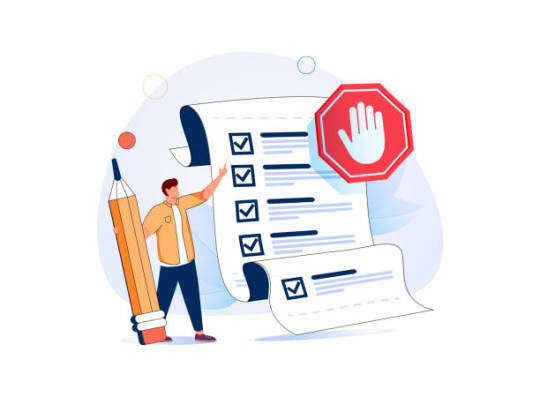
Obtaining a health care license in Florida is a vital step for healthcare specialists targeting to practice in the Sunshine State. The procedure could be sophisticated and challenging, but along with effective support and preparation, it may be gotten through effortlessly.
6 Crucial Pointers To Aid Make Sure A Productive Florida Medical License Application:
Understand the Requirements
Just before beginning the application process, it is actually necessary to carefully recognize the requirements set on through the Florida Board of Medicine. Needs may vary depending on elements such as the sort of license being found and the candidate's informative background. Usually, candidates have to have gotten a degree coming from an accredited medical university, accomplished a post degree residency system, and passed the United States Medical Licensing Examination (USMLE) or even the Comprehensive Osteopathic Medical Licensing Examination (COMLEX-USA).
Furthermore, applicants might require to offer documentation of postgraduate instruction, recommendation letters, and documentation of great standing along with other health care licensing authorities. Through informing yourself along with these criteria early, you may make sure that your application consists of all the necessary information as well as paperwork.
Beginning Early and Stay Organized
The Florida state medical license application process may be prolonged, usually taking a number of months to accomplish. To avoid hold-ups, it's important to start very early as well as remain coordinated throughout the procedure. Start gathering needed documentations as well as relevant information effectively ahead of time, as well as make a guidelines to track your development.
Maintain all documentations managed in a secure site, and make duplicates as needed to have. Skipping or insufficient documents is among the most usual explanations for problems or even denials in the application method. Through remaining arranged and positive, you may lessen the risk of experiencing these issues.
Utilize Online Resources
The Florida Department of Health web site supplies a riches of sources as well as info for Florida physician license candidates. Make use of these resources to acquaint yourself along with the application method, access types and also instructions, and also keep upgraded on any improvements or even updates to licensing needs.
Also, take into consideration utilizing on the internet forums and also communities where other medical care specialists share their knowledge and insights concerning the licensing method. These platforms can give valuable suggestions, assistance, as well as assistance as you navigate the application process.
Seek Professional Assistance if Needed
Navigating the clinical license application process may be demanding, particularly for global health care graduates or those with unique conditions. If you're doubtful about any component of the method or even confrontation challenges en route, don't wait to look for professional support.
There are different services as well as consultants on call that focus on assisting medical care professionals along with licensing uses. These professionals may provide support, review your application products, and also deal customized assistance to assist you get rid of any kind of barriers and raise your possibilities of success.
Get Ready For Background Checks as well as Verifications

As aspect of the application method, the state medical board of Florida will certainly administer extensive history examinations and verifications to make certain the qualifications and also accreditations of candidates. This might include validating your educational past, instruction, and licensure condition in other jurisdictions.
Be actually prepped to deliver exact as well as thorough details concerning your background, featuring any previous disciplinal actions or even legal concerns. It's important to be actually honest as well as clear throughout the method, as providing untrue or deceptive relevant information can easily result in serious consequences, including rejection of your application.
Follow Up and also Stay Informed
Once you've submitted your application, don't just kick back and also wait on a response. Comply with up regularly with the Florida Board of Medicine to review the condition of your application as well as resolve any type of concerns or issues that may develop.
Remain notified concerning any kind of updates or ask for extra details from the board, as well as react immediately to any kind of concerns. Through staying proactive and interacted throughout the method, you can help guarantee that your application progresses effortlessly as well as effectively.
Finally, securing health care license in Florida demands careful prep work, organization, and carefulness. Through recognizing the needs, starting early, utilizing information, seeking help when needed to have, getting ready for background inspections, as well as staying notified, you can easily raise your opportunities of a productive application and also begin practicing medication in the Sunshine State.
0 notes
Text
Florida Medical Licenses: The Course To Successful Health Care Profession

Plunging into a career in health care in Florida is an impressive experience loaded with possibilities to produce a distinction in folks's lifestyles. Whether you desire end up being a medical professional, doctor, or even every other healthcare specialist, acquiring a Florida medical license is actually a vital measure toward achieving your targets. Understanding the procedure as well as needs for getting a Fla health care license is essential for a hassle-free switch in to practice. Listed below is actually a complete manual to help you browse this crucial breakthrough in your career.
Undergraduate Learning
The experience to becoming a certified health care qualified usually begins with a bachelor's level. While there is actually no certain major demanded for medical college, the majority of pupils go after levels in biology, chemical make up, or various other associated areas. Sustaining a higher grade point average as well as engaging in after-school activities pertinent to the medical area can easily boost your application.
Medical Institution
After accomplishing your undergraduate research studies, the following step is actually going to clinical school. In FL, there are many certified medical colleges where you can easily earn your Doctor of Medication (MD) or even Doctor of Osteopathic Medication (DO) degree. These systems usually take 4 years to finish as well as consist of classroom guideline in addition to professional rotations.
USMLE or even COMLEX Assessments
Irrespective of whether you pursue an MD or DO degree, you'll need to have to pass either the United States Medical Licensing Examination (USMLE) or even the Comprehensive Osteopathic Medical Licensing Exam (COMLEX). These physical exams evaluate your knowledge as well as skills in several places of medication and also are actually divided in to numerous steps. Passing these tests is actually a qualification for securing a Florida medical license.
Graduate Medical Education And Learning (Residency).
Observing clinical university, aspiring medical professionals have to complete a post degree residency program in their selected specialized. Residency systems offer hands-on training under the oversight of seasoned doctors and also generally last three to 7 years, depending upon the specialty. Protecting a residency opening through the National Homeowner Matching System (NRMP) or even the United States Osteopathic Organization (AOA) is actually necessary for advancing in your medical job.
FL Medical License Application.

As soon as you've effectively completed clinical institution and residency, you can request a health care license. The FL Board of Medication supervises the licensure method for medical professionals, while the Florida Board of Osteopathic Medication takes care of licensing for osteopathic medical doctors. The Florida state medical license application process consists of submitting several records, such as transcripts, examination scores, as well as letters of suggestion, along with the required costs.
History Check and also References Confirmation.
As aspect of the licensure procedure, candidates have to undergo an unlawful background examination and deliver information to validate their medical learning and instruction. This makes sure that merely trained people get a clinical license as well as helps guard the general public coming from unqualified specialists.
Continuing Medical Education And Learning (CME).
Once licensed, healthcare specialists in FL should accomplish continuing health care education criteria to keep their license. CME tasks assist medical doctors stay current with developments in medicine as well as enhance their clinical capabilities. The FL Board of Medication and the FL Board of Osteopathic Medicine create details CME needs that accredited doctors have to fulfill on an on-going basis.
Professional Growth and Media.
Past securing a health care license, constructing a successful healthcare career in FL requires continuous expert advancement and social network. Participating in mentorship options, participating in expert organizations, and also joining conferences as well as workshops can assist you remain linked along with peers and also evolve your job prospects.
Lastly, acquiring a health care license is actually a considerable landmark on the pathway to a productive healthcare profession in Florida. Through finishing the needed education, training, and licensure criteria, aiming health care experts may accomplish their desire making a favorable effect on the health and wellness as well as welfare of people as well as neighborhoods all over the condition. Along with commitment, perseverance, as well as a commitment to long-lasting learning, you may plunge into a satisfying journey in the powerful and rewarding field of health care.
0 notes
Text
NExT 2
The NEXT 2 examination is designed to evaluate the readiness of a recent MBBS graduate to effectively manage and advise patients in real-life scenarios. It is confirmed that NEXT 2 will not be linked to the Medical PG process; rather, it will serve as a licentiate examination enabling individuals to independently practice medicine in India.
It is important to note that the following information is not based on any official announcement by the NMC. While not entirely speculative, there is a high likelihood that the details presented here will align with the actual exam format.
NEXT 2 Exam Pattern: The objective of the NEXT 2 exam suggests that the questions will focus on assessing the clinical skills of newly graduated MBBS professionals. This presents a few potential scenarios.
In the past, the USMLE included a section known as the USMLE Step 2 CS, which evaluated a physician's practical patient management skills. Although USMLE no longer includes this test, the format of questions in NEXT 2 may draw similarities from Step 2 CS.
In this setup, physicians interacted with individuals acting as patients. The doctor conducted an examination, made diagnostic inferences, proposed a treatment plan, and proceeded accordingly. This process was time-intensive, and it wouldn't be surprising if, similar to USMLE, the NEXT 2 exam spans over an 8-hour duration.
Given the challenges posed by the COVID-19 pandemic, real-life patient interactions may be limited. A potential adaptation could involve computer-simulated case studies, where doctors engage with virtual patients to diagnose and treat medical conditions.
0 notes
Text
Prometric MCQ

Navigating Prometric Medical MCQs: A Comprehensive Guide
Introduction: In the realm of medical education and professional development, passing licensing examinations is a crucial step. Prometric MCQs (Multiple Choice Questions) serve as a pivotal component of these assessments, testing the knowledge and competency of aspiring medical professionals. Whether you're preparing for licensure exams, such as the United States Medical Licensing Examination (USMLE), or seeking registration in countries like Oman, navigating Prometric exams effectively is essential for success.
Understanding Prometric MCQs: Prometric MCQs are designed to evaluate candidates' understanding of medical concepts, clinical scenarios, and problem-solving skills. These questions cover a broad spectrum of medical disciplines, ranging from basic sciences to specialized clinical fields. The format typically involves selecting the most appropriate answer from a list of options, requiring candidates to apply their knowledge under time constraints.
Primary Source Verification (PSV) - Dataflow: Before scheduling a Prometric exam, candidates often need to undergo Primary Source Verification (PSV) through platforms like DataFlow Group. PSV involves the authentication of academic credentials, professional qualifications, and work experience to ensure compliance with regulatory standards. This process adds an extra layer of credibility to candidates' profiles and is often a prerequisite for exam eligibility.
Oman Viva Coaching: In countries like Oman, medical licensing exams may include practical assessments like vivas (oral examinations). Viva coaching services are designed to help candidates prepare for these interactive assessments by simulating real exam scenarios, providing feedback, and refining communication skills. Experienced tutors guide candidates in articulating their knowledge effectively and building confidence for the examination day.
Prometric Sure Shot MCQs: To streamline preparation, many candidates seek "sure shot" MCQs – questions that are highly likely to appear on the actual exam. While there's no foolproof method to predict exam content, experienced educators and past test-takers often compile lists of frequently tested topics and concepts. Reviewing these MCQs can help candidates focus their studies on high-yield areas and maximize their chances of success.
Prometric WhatsApp Subscription: In the digital age, staying updated with exam trends, study resources, and preparation tips is crucial. Prometric WhatsApp subscriptions offer a convenient way to receive regular updates, study materials, and guidance from experienced mentors. These subscription services often provide a supportive community of fellow candidates, fostering collaboration and sharing of valuable insights.
Prometric Online Subscription: For comprehensive exam preparation, online subscription platforms offer a wealth of resources, including question banks, practice exams, video lectures, and interactive study tools. These subscriptions cater to various learning styles and allow candidates to study at their own pace, track progress, and identify areas for improvement. Additionally, some platforms offer personalized study plans tailored to individual needs.
Prometric Online Coaching: In addition to self-study resources, online coaching programs provide structured guidance and expert support to navigate Prometric exams successfully. Experienced faculty members conduct live classes, review sessions, and mock exams, offering personalized feedback and strategies for tackling different question formats. These coaching programs leverage technology to create immersive learning experiences and foster academic excellence.
Conclusion: Preparing for Prometric MCQs requires a combination of comprehensive study materials, strategic preparation strategies, and access to supportive resources. Whether you're embarking on your medical licensing journey or seeking registration in a new healthcare jurisdiction, leveraging Prometric exam resources and support services can significantly enhance your chances of achieving success. By embracing innovative study approaches and seeking guidance from experienced mentors, you can confidently navigate Prometric exams and embark on a fulfilling medical career journey.
Visit here: https://www.medicalmcq4all.com/
0 notes
Text
Why are Private Medical Colleges in India losing ground to European Med Schools?
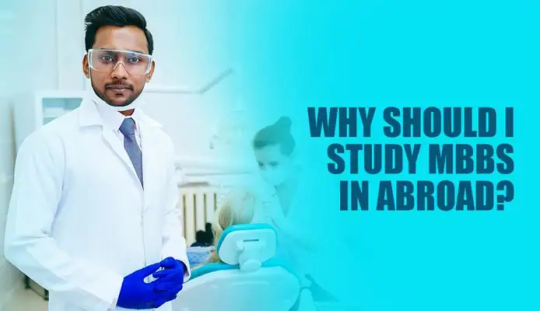
The allure of European medical schools is eclipsing India’s top private institutions for several reasons. Firstly, European schools offer cutting-edge facilities, advanced technology, and innovative teaching methods, surpassing traditional Indian models. Secondly, the global recognition and accreditation of European degrees and lower tuition fees and living costs make them increasingly attractive to Indian students. Thirdly, the multicultural environment of European campuses fosters diverse perspectives and international networking opportunities. Finally, stringent entrance exams and limited seats in Indian colleges drive students to explore alternative options abroad. As a result, European medical schools are rapidly gaining ground over their Indian counterparts.
Countries for MBBS in Europe
Czech Republic , Lithuania , Spain , Poland , Serbia , Latvia , Romania , France , Bosnia , Slovakia , Bulgaria , Albania , Italy , Macedonia , United Kingdom
Countries for MBBS in East Europe
Russia , Moldova , Belarus , Armenia , Georgia
Benefits of Studying MBBS in Georgia for Indian Students

Studying MBBS in Georgia presents numerous benefits for Indian students. Firstly, Georgian medical universities offer affordable tuition fees and living expenses, making quality education accessible. Secondly, the curriculum is taught entirely in English, eliminating language barriers for international students. Additionally, the medical programs are recognized by global bodies like the World Health Organization (WHO) and Medical Council of India (MCI), ensuring graduates can practice in India after passing the screening test. Moreover, Georgia provides a safe and welcoming environment with a rich cultural experience. Overall, pursuing MBBS in Georgia offers Indian students a cost-effective, high-quality education with promising career prospects.
What is the Integrated American Program?
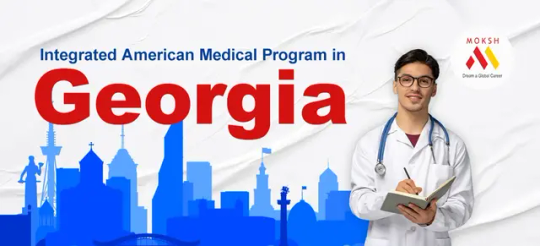
The Integrated American Program is designed to prepare students for the USMLE exam and to practice medicine in the United States. Students in this program start preparing for the USMLE Step 1 exam right from the first year of their MBBS studies. The USMLE exam prep course is integrated with the standard MBBS program, and students typically take the Step 1 exam at the end of their third year of MBBS. USMLE Step 2CK exam preparation begins in the fourth year, and students typically take this exam in their fifth year.
Finally, in their final year of MBBS, students complete a US hospital clerkship and all of the requirements for applying for ECFME certification, which leads to residency applications for their medical PG course in the USA.
Top Med Schools in Georgia
Univ of Georgia (Integrated American Program)
Tbilisi State Medical Univ
Teaching Univ Geomedi
Ilia State Univ
Georgian National Univ
Georgian American Univ
David Tvildiani Medical Univ AIETI
Caucasus Univ
Alte Univ
Akaki Tsereteli State Univ
Ivane Javakhishvili Tbilisi State Univ
Batumi Shota Rustaveli State Univ
Petre Shotadze Tbilisi Medical Academy
New Vision Univ
Kutaisi Univ
Grigol Robakidze Univ
European Univ
Caucasus International Univ
BAU International Univ
East European Univ
How to Apply for MBBS in Georgia
To apply for MBBS in Georgia, first, research accredited medical universities. Then, gather required documents like academic transcripts, passport copy, and proof of English proficiency. Next, fill out the online application form provided by the chosen university and submit it along with the required documents. Some universities may require additional entrance exams or interviews. Once accepted, obtain a student visa by submitting the acceptance letter, visa application form, and other necessary documents to the Georgian Embassy or Consulate. Finally, arrange for accommodation and make necessary travel arrangements. Be sure to check deadlines and requirements specific to each university.
0 notes
Text
What is the difference between clinical rotation and medical residency
Clinical rotations and medical residencies are essential components of medical education in the USA, providing hands-on clinical experience and preparing immigration students for residency and future practice.
This guide is designed to provide a clear understanding of the purpose, eligibility, advantages, and challenges associated with clinical rotations for immigration students in the USA.
These rotations and residencies are pivotal in shaping the medical careers of immigration students, equipping them with the necessary skills and experience for their future practice in the United States.
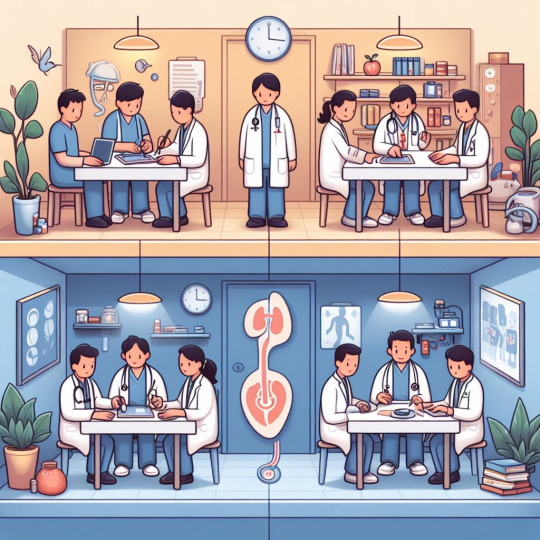
I. Clinical Rotation: A Hands-On Prelude to Medical Practice
Clinical rotations, also known as clerkships, are immersive hands-on experiences that medical students undertake during their final years of medical school.
These rotations provide students with the opportunity to apply their theoretical knowledge in real-world clinical settings, gaining invaluable experience in patient care and honing their clinical skills.
Clinical rotations typically span various medical specialties, including internal medicine, surgery, and, exposing students to a wide spectrum of medical conditions and treatment modalities.
II. Types of Clinical Rotations: Inpatient, Outpatient, and Beyond
Clinical rotations can be broadly categorized into inpatient and outpatient settings. Inpatient rotations involve working with patients admitted to hospitals, allowing students to manage acute illnesses and chronic conditions over an extended period.
Outpatient rotations, on the other hand, focus on the care of patients in ambulatory settings, such as clinics and community health centers, providing exposure to preventative medicine and management of chronic diseases.
Additionally, students may also participate in specialty-specific rotations, such as dermatology, ophthalmology, or cardiology, to gain in-depth knowledge in specific medical fields.
III. Eligibility for Clinical Rotations: Paving the Path for Hands-On Experience
To be eligible for clinical rotations, medical students must typically have completed their pre-clinical coursework, including foundational sciences such as anatomy, physiology, and pharmacology.
Additionally, students may be required to pass standardized exams, such as the United States Medical Licensing Examination (USMLE) Step 1, before being allowed to participate in clinical rotations. Immigration students seeking clinical rotations in the USA should ensure that they meet all eligibility requirements and obtain the necessary visas and permits to legally work and train in the country.
IV. Pros and Cons of Clinical Rotations: Weighing the Benefits and Challenges
Clinical rotations offer a multitude of advantages for medical students, including:
Hands-on experience in patient care, allowing students to apply their knowledge and skills in real-world settings
Exposure to various medical specialties, helping students identify their areas of interest and career aspirations
Development of clinical reasoning and problem-solving abilities, essential for effective patient management
Opportunities for collaboration and teamwork with healthcare professionals from diverse backgrounds
However, clinical rotations also come with certain challenges, including:
Long working hours and demanding schedules, which can be physically and mentally taxing
Limited control over schedules, as students are often assigned to rotations based on availability and institutional needs
Potential for encountering difficult or emotionally challenging cases, which can be emotionally draining
V. Medical Residency: The Crucible of Physician Training
Medical residency is the next step in the medical education journey, following the completion of medical school and clinical rotations.
During residency, physicians-in-training, also known as residents, receive specialized training in a chosen medical specialty.
Residency programs typically last from three to seven years, depending on the specialty, and involve intensive clinical training, research, and academic coursework.
Residents work under the supervision of experienced attending physicians and are progressively given more responsibility as they gain competence in their chosen field.
VI. Prasad Medical Center: A Paragon of Medical Residency Education

Among the esteemed medical residency programs in the United States, Prasad Medical Center stands out as a beacon of excellence.
With its world-class facilities, renowned faculty, and cutting-edge research opportunities, Prasad Medical Center offers an exceptional training environment for aspiring physicians.
Graduates of Prasad Medical Center's residency programs are highly sought after by hospitals and medical institutions across the country, making it a top destination for medical students seeking a transformative residency experience.
VII. The Profound Impact of Medical Residency: Shaping Physicians of Tomorrow
Medical residency plays a pivotal role in shaping the careers of physicians, offering numerous benefits, including:
In-depth training in a chosen medical specialty, allowing physicians to develop specialized knowledge and skills
Opportunities to work with diverse patient populations and manage complex medical cases, fostering clinical expertise
Development of leadership and teamwork skills, essential for effective patient care and collaboration with healthcare professionals
Preparation for independent practice, empowering physicians with the confidence and competence to provide high-quality patient care
VIII. Strategies for Reducing the Financial Burden of Medical Residency
Medical residency can be financially demanding, but there are strategies to mitigate the financial burden:
Explore scholarship opportunities, grants, and financial aid programs offered by medical institutions, foundations, and government agencies
Consider participating in loan forgiveness programs, such as the Public Service Loan Forgiveness Program, which can provide substantial debt relief for physicians who work in underserved communities
Evaluate options for part-time employment or moonlighting during residency to supplement income and offset living expenses
IX. Embarking on the Journey: Steps to Clinical Rotation and Medical Residency Success
For immigration students seeking clinical rotations and medical residency in the USA, the following steps can help pave the way for success:
Research and identify medical schools and residency programs that offer clinical rotations and medical residencies aligned with your career goals and interests
Start early in building your CV and portfolio by engaging in extracurricular activities, research projects, and volunteer work related to healthcare
Network with healthcare professionals, attend conferences and workshops, and seek mentorship opportunities to gain insights into the field and enhance your professional connections
Prepare diligently for standardized exams, such as the USMLE, which are crucial for securing clinical rotation placements and residency positions
X. Frequently Asked Questions (FAQs): Addressing Common Queries
What are the eligibility requirements for clinical rotations in the USA? USMLE Step 1 pass, ECFMG certification, valid visa, English proficiency, and financial support.
How can international medical graduates (IMGs) obtain clinical rotation placements in the USA? Contact program directors, attend residency fairs, and use online platforms.
What are the different types of medical residencies available? Primary care, surgical, medical, and subspecialty residencies.
How can I increase my chances of matching into a competitive residency program? Research, volunteer, build a strong CV and personal statement, and network.
Are there financial assistance options available for medical residents? Scholarships, grants, and loans are available.
Summing Up
Clinical rotations and medical residencies are indispensable components of medical education, providing invaluable hands-on experience and specialized training that transform medical students into competent and compassionate physicians.
Immigration students seeking medical education in the USA have the opportunity to pursue these transformative experiences, enriching their medical knowledge, honing their clinical skills, and embarking on a fulfilling career in medicine.
As you navigate this journey, remember that challenges and rewards go hand in hand.
Embrace the obstacles as opportunities for growth and learning, and never lose sight of your unwavering commitment to patient care and medical excellence.
Are you ready to embark on this extraordinary adventure?
Get in Touch
Address: 894 Eastern Parkway, Brooklyn, NY 11213
Office: 718-774-6060
Fax: 718-774-4426
After Hours: Call or Text- (516)450-0701
#clinicalrotations#medicalstudents#clinicalresearch#prasadmedicalcenterusce#internalmedicine#medicalassistant#meded#differencesclinicalrotationandmedicalresidency
0 notes
Photo
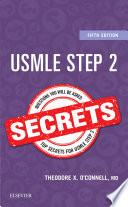
Concise and easy to use, USMLE Step 2 Secrets, by prolific author Theodore X. O’Connell, MD, is an effective, high-yield review for achieving success on this high-stakes exam. Presented in the popular, time-tested Secrets® Q&A format, this bestselling USMLE review book prepares you for the broad-based diagnosis, treatment, and management questions you’ll face on the
0 notes
Photo
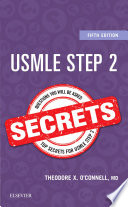
Concise and easy to use, USMLE Step 2 Secrets, by prolific author Theodore X. O’Connell, MD, is an effective, high-yield review for achieving success on this high-stakes exam. Presented in the popular, time-tested Secrets® Q&A format, this bestselling USMLE review book prepares you for the broad-based diagnosis, treatment, and management questions you’ll face on the
0 notes
Text
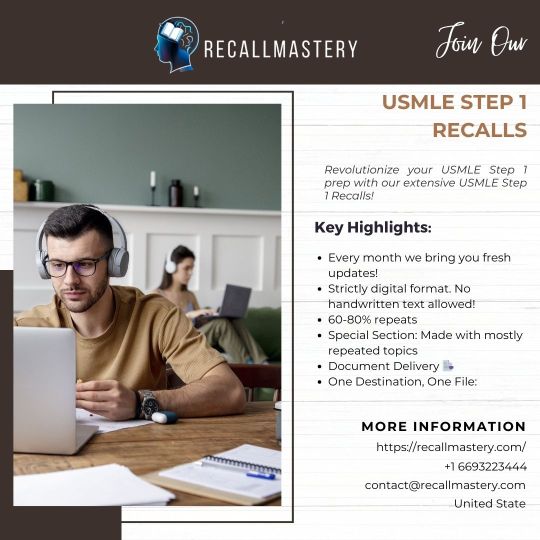
Revolutionize your USMLE Step 1 prep with our extensive USMLE Step 1 Recalls! Dive into high-yield content, master key concepts, and excel in your exams. Recall Mastery provide an effective pathway for your success. If you want to learn more, get in touch with us today.
0 notes
Text
(PDF) USMLE Pharmacology and Treatment Flashcards: The 200 Questions You're Most Likely to See on the Exam For Steps 1, 2 & 3
Fully revised and updated by Dr. Conrad ...
https://pdfelite.com/product/pdf-usmle-pharmacology-and-treatment-flashcards-the-200-questions-youre-most-likely-to-see-on-the-exam-for-steps-1-2-3/?feed_id=70&_unique_id=6627065bb3317
0 notes
Text
USMLE Pathway Program in hyderabad by themet
The USMLE Pathway Program Step by Step is a comprehensive guide developed by TheMet World to help students navigate the United States Medical Licensing Examination (USMLE) process. This program covers the key steps students need to take in order to successfully complete all components of the USMLE. Below is a detailed outline of the program:
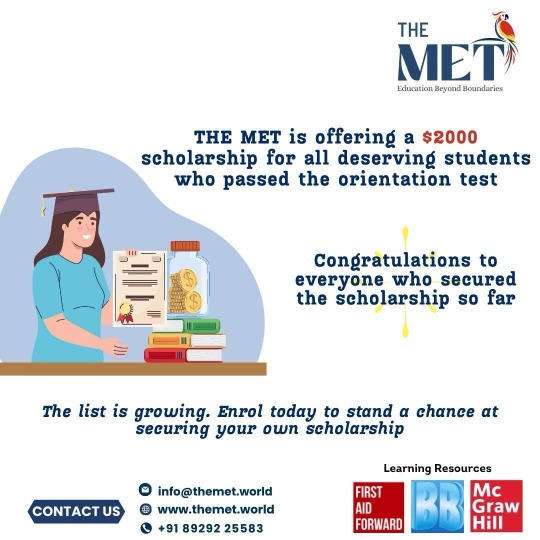
Step 1: Understanding the USMLE Exam Requirements
Detailed overview of the USMLE exam structure and scheduling
Explanation of eligibility requirements and application process
Guidance on preparing essential documents and fees
Step 2: Test Preparation Strategies
Tips for effective study habits and time management
Resources for high-yield review materials and practice tests
Strategies for managing test anxiety and staying focused
Step 3: Test-Taking Techniques
Overview of different question formats and strategies for each
Practice questions and mock exams to simulate exam conditions
Techniques for improving critical thinking and reasoning skills
Step 4: Application Process
Guidelines for completing the online application and scheduling exam dates
Information on exam locations, rules, and regulations
Tips for troubleshooting common application issues
Step 5: Post-Exam Evaluation
Understanding your exam score report and interpreting results
Strategies for evaluating strengths and areas for improvement
Planning next steps in your medical licensing journey
The USMLE Pathway Program Step by Step by TheMet World is designed to demystify the USMLE exam process and provide students with the knowledge and tools necessary to succeed. By following this step-by-step guide, students can confidently navigate each stage of the USMLE journey and achieve their goals of becoming licensed physicians in the United States.
For more details Contact us -
Phone no - +91 89292 25583, +91 78881 19999
Email Id- [email protected]
Website Link - https://themet.world/
Address - VC ICONIC, Kavuri Hills, Phase 1, Madhapur, Telangana – 500033
0 notes
Text
Revolutionizing Healthcare: Exploring the Impact and Future of Large Language Models in Medicine
New Post has been published on https://thedigitalinsider.com/revolutionizing-healthcare-exploring-the-impact-and-future-of-large-language-models-in-medicine/
Revolutionizing Healthcare: Exploring the Impact and Future of Large Language Models in Medicine
The integration and application of large language models (LLMs) in medicine and healthcare has been a topic of significant interest and development.
As noted in the Healthcare Information Management and Systems Society global conference and other notable events, companies like Google are leading the charge in exploring the potential of generative AI within healthcare. Their initiatives, such as Med-PaLM 2, highlight the evolving landscape of AI-driven healthcare solutions, particularly in areas like diagnostics, patient care, and administrative efficiency.
Google’s Med-PaLM 2, a pioneering LLM in the healthcare domain, has demonstrated impressive capabilities, notably achieving an “expert” level in U.S. Medical Licensing Examination-style questions. This model, and others like it, promise to revolutionize the way healthcare professionals access and utilize information, potentially enhancing diagnostic accuracy and patient care efficiency.
However, alongside these advancements, concerns about the practicality and safety of these technologies in clinical settings have been raised. For instance, the reliance on vast internet data sources for model training, while beneficial in some contexts, may not always be appropriate or reliable for medical purposes. As Nigam Shah, PhD, MBBS, Chief Data Scientist for Stanford Health Care, points out, the crucial questions to ask are about the performance of these models in real-world medical settings and their actual impact on patient care and healthcare efficiency.
Dr. Shah’s perspective underscores the need for a more tailored approach to utilizing LLMs in medicine. Instead of general-purpose models trained on broad internet data, he suggests a more focused strategy where models are trained on specific, relevant medical data. This approach resembles training a medical intern – providing them with specific tasks, supervising their performance, and gradually allowing for more autonomy as they demonstrate competence.
In line with this, the development of Meditron by EPFL researchers presents an interesting advancement in the field. Meditron, an open-source LLM specifically tailored for medical applications, represents a significant step forward. Trained on curated medical data from reputable sources like PubMed and clinical guidelines, Meditron offers a more focused and potentially more reliable tool for medical practitioners. Its open-source nature not only promotes transparency and collaboration but also allows for continuous improvement and stress testing by the wider research community.
MEDITRON-70B-achieves-an-accuracy-of-70.2-on-USMLE-style-questions-in-the-MedQA-4-options-dataset
The development of tools like Meditron, Med-PaLM 2, and others reflects a growing recognition of the unique requirements of the healthcare sector when it comes to AI applications. The emphasis on training these models on relevant, high-quality medical data, and ensuring their safety and reliability in clinical settings, is very crucial.
Moreover, the inclusion of diverse datasets, such as those from humanitarian contexts like the International Committee of the Red Cross, demonstrates a sensitivity to the varied needs and challenges in global healthcare. This approach aligns with the broader mission of many AI research centers, which aim to create AI tools that are not only technologically advanced but also socially responsible and beneficial.
The paper titled “Large language models encode clinical knowledge” recently published in Nature, explores how large language models (LLMs) can be effectively utilized in clinical settings. The research presents groundbreaking insights and methodologies, shedding light on the capabilities and limitations of LLMs in the medical domain.
The medical domain is characterized by its complexity, with a vast array of symptoms, diseases, and treatments that are constantly evolving. LLMs must not only understand this complexity but also keep up with the latest medical knowledge and guidelines.
The core of this research revolves around a newly curated benchmark called MultiMedQA. This benchmark amalgamates six existing medical question-answering datasets with a new dataset, HealthSearchQA, which comprises medical questions frequently searched online. This comprehensive approach aims to evaluate LLMs across various dimensions, including factuality, comprehension, reasoning, possible harm, and bias, thereby addressing the limitations of previous automated evaluations that relied on limited benchmarks.
MultiMedQA, a benchmark for answering medical questions spanning medical exam
Key to the study is the evaluation of the Pathways Language Model (PaLM), a 540-billion parameter LLM, and its instruction-tuned variant, Flan-PaLM, on the MultiMedQA. Remarkably, Flan-PaLM achieves state-of-the-art accuracy on all the multiple-choice datasets within MultiMedQA, including a 67.6% accuracy on MedQA, which comprises US Medical Licensing Exam-style questions. This performance marks a significant improvement over previous models, surpassing the prior state of the art by more than 17%.
MedQA
Format: question and answer (Q + A), multiple choice, open domain.
Example question: A 65-year-old man with hypertension comes to the physician for a routine health maintenance examination. Current medications include atenolol, lisinopril, and atorvastatin. His pulse is 86 min−1, respirations are 18 min−1, and blood pressure is 145/95 mmHg. Cardiac examination reveals end diastolic murmur. Which of the following is the most likely cause of this physical examination?
Answers (correct answer in bold): (A) Decreased compliance of the left ventricle, (B) Myxomatous degeneration of the mitral valve (C) Inflammation of the pericardium (D) Dilation of the aortic root (E) Thickening of the mitral valve leaflets.
The study also identifies critical gaps in the model’s performance, especially in answering consumer medical questions. To address these issues, the researchers introduce a method known as instruction prompt tuning. This technique efficiently aligns LLMs to new domains using a few exemplars, resulting in the creation of Med-PaLM. The Med-PaLM model, though it performs encouragingly and shows improvement in comprehension, knowledge recall, and reasoning, still falls short compared to clinicians.
A notable aspect of this research is the detailed human evaluation framework. This framework assesses the models’ answers for agreement with scientific consensus and potential harmful outcomes. For instance, while only 61.9% of Flan-PaLM’s long-form answers aligned with scientific consensus, this figure rose to 92.6% for Med-PaLM, comparable to clinician-generated answers. Similarly, the potential for harmful outcomes was significantly reduced in Med-PaLM’s responses compared to Flan-PaLM.
The human evaluation of Med-PaLM’s responses highlighted its proficiency in several areas, aligning closely with clinician-generated answers. This underscores Med-PaLM’s potential as a supportive tool in clinical settings.
The research discussed above delves into the intricacies of enhancing Large Language Models (LLMs) for medical applications. The techniques and observations from this study can be generalized to improve LLM capabilities across various domains. Let’s explore these key aspects:
Instruction Tuning Improves Performance
Generalized Application: Instruction tuning, which involves fine-tuning LLMs with specific instructions or guidelines, has shown to significantly improve performance across various domains. This technique could be applied to other fields such as legal, financial, or educational domains to enhance the accuracy and relevance of LLM outputs.
Scaling Model Size
Broader Implications: The observation that scaling the model size improves performance is not limited to medical question answering. Larger models, with more parameters, have the capacity to process and generate more nuanced and complex responses. This scaling can be beneficial in domains like customer service, creative writing, and technical support, where nuanced understanding and response generation are crucial.
Chain of Thought (COT) Prompting
Diverse Domains Utilization: The use of COT prompting, although not always improving performance in medical datasets, can be valuable in other domains where complex problem-solving is required. For instance, in technical troubleshooting or complex decision-making scenarios, COT prompting can guide LLMs to process information step-by-step, leading to more accurate and reasoned outputs.
Self-Consistency for Enhanced Accuracy
Wider Applications: The technique of self-consistency, where multiple outputs are generated and the most consistent answer is selected, can significantly enhance performance in various fields. In domains like finance or legal where accuracy is paramount, this method can be used to cross-verify the generated outputs for higher reliability.
Uncertainty and Selective Prediction
Cross-Domain Relevance: Communicating uncertainty estimates is crucial in fields where misinformation can have serious consequences, like healthcare and law. Using LLMs’ ability to express uncertainty and selectively defer predictions when confidence is low can be a crucial tool in these domains to prevent the dissemination of inaccurate information.
The real-world application of these models extends beyond answering questions. They can be used for patient education, assisting in diagnostic processes, and even in training medical students. However, their deployment must be carefully managed to avoid reliance on AI without proper human oversight.
As medical knowledge evolves, LLMs must also adapt and learn. This requires mechanisms for continuous learning and updating, ensuring that the models remain relevant and accurate over time.
#ai#applications#approach#Art#Artificial Intelligence#benchmarks#Bias#billion#blood#blood pressure#Collaboration#Community#Companies#compliance#comprehension#comprehensive#conference#continuous#customer service#data#Data Scientist#datasets#deployment#development#diagnostics#dimensions#Diseases#domains#education#efficiency
1 note
·
View note
Text
Navigating the World of Knowledge: A Comprehensive Guide to Essential Medical Books
In the ever-evolving field of medicine, staying abreast of the latest developments, breakthroughs, and foundational knowledge is crucial for healthcare professionals, students, and enthusiasts alike. One indispensable resource that continues to stand the test of time is the humble medical book. In this article, we'll delve into the diverse realm of medical literature, exploring the essential medical books that have become staples in the libraries of those passionate about healthcare.
The Foundation: Anatomy and Physiology
A strong foundation in anatomy and physiology is fundamental for anyone entering the medical field. From the timeless "Gray's Anatomy" to more contemporary works, understanding the intricacies of the human body is the first step towards becoming a proficient healthcare practitioner.
Clinical Companions: Diagnosis and Treatment
For clinicians and medical students, diagnostic and treatment manuals are indispensable. Works like the "Merck Manual" and "Harrison's Principles of Internal Medicine" offer comprehensive insights into a myriad of medical conditions, guiding professionals through the intricacies of accurate diagnosis and effective treatment.
Learning the Language: Medical Textbooks
Medical textbooks serve as comprehensive guides, covering a wide range of subjects from pharmacology to pathology. Titles like "Robbins and Cotran Pathologic Basis of Disease" and "Goodman and Gilman's The Pharmacological Basis of Therapeutics" are cherished by medical students for their depth and clarity.
Cutting-Edge Knowledge: Research and Specialized Fields
As medicine advances, so too does the need for specialized knowledge. Books focusing on specific medical specialties or the latest research findings are invaluable. Whether it's "Current Medical Diagnosis and Treatment" or "The Oxford Handbook of Clinical Medicine," these resources keep practitioners informed about the latest developments in their respective fields.
Exam Preparation: Review Books and Question Banks
For those navigating the challenging path of medical exams, review books and question banks are indispensable. Titles like "First Aid for the USMLE Step 1" and "PreTest Series" provide targeted exam preparation, helping students consolidate their knowledge and succeed in crucial assessments.
Beyond the Basics: Inspirational and Thought-Provoking Reads
Medical literature extends beyond textbooks and clinical guides. Inspirational and thought-provoking works, such as Atul Gawande's "Being Mortal" or Siddhartha Mukherjee's "The Emperor of All Maladies," offer a broader perspective on the human side of medicine, encouraging reflection on the ethical, social, and emotional aspects of healthcare.
Embracing the Digital Age: E-books and Online Resources
In the digital age, medical books have adapted to new formats. E-books and online resources provide accessibility and convenience. Platforms like UpToDate, AccessMedicine, and PubMed offer a wealth of information at the click of a button, complementing traditional print resources.
For more info:-
medical bookshop
bpp acca books
0 notes